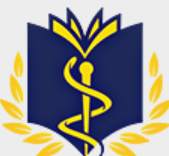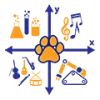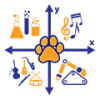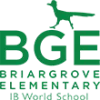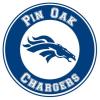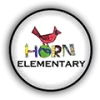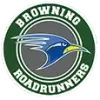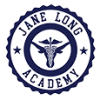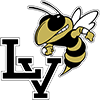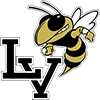st.anns elementary school
Roosevelt Elementary School HISD
Barbers Hill Middle School North
Barbers Hill Middle School South
Ensworth School Middle School
Girls Preparatory School Middle School
Dickinson ISD Elementary School
Dickinson ISD Middle School
Dickinson ISD High School
Harvard Elementary School
Crockett Elementary School
Bloom Academy Elementary School
Etoile Academy Elementary School
Crosbyton Elementary School
Lorenzo Elementary School
Lockney Elementary School
Slaton ISD Elementary School
Chattanooga Preparatory School
Marshall Middle Academy of Fine Arts
Boys & Girls Club of Greater Houston
West Lakes Preparatory Academy
Boys & Girls Club of Greater Houston 2
James Madison High School
Harris County Department of Education: Academic and Behavior School - East
Washington Alternative Learning Center
BRIDGE - East Brainerd Site
BRIDGE - Middle Valley Site
BRIDGE - Orchard Knob Site
BRIDGE - Barger Academy Site
Joshua Isd Ninth Grade Campus
Frederick Douglass Elementary
Sugar Grove Academy Middle
Euless Junior High School
SOAR - Middle Valley Elementary
SOAR - Calvin Donaldson Elementary
SOAR - Ooltewah Elementary
Wallace A. Smith Elementary
Hamilton County Virtual School
Hamilton County Central Office
Orchard Knob Middle School
Lookout Valley High School
Chattanooga Central High School
Lookout Valley Elementary School
Harrison Elementary School
Alpine Crest Elementary School
Calvin Donaldson Elementary School
East Ridge Elementary School
Big Ridge Elementary School
Montessori Elementary at Highland Park
Bridge - Calvin Donaldson Site
Career Construction Center
Chattanooga High Center For Creative Arts
Chattanooga School For The Arts & Sciences
Chattanooga School For The Liberal Arts
Tyner Middle High Academy
NORMAL PARK MUSEUM MAGNET (LOWER)
NORMAL PARK MUSEUM MAGNET (Middle)
NORTH HAMILTON COUNTY ELEMENTARY
Lookout Valley Middle School
Spring Creek Elementary School
East Hamilton Middle School
East Lake Academy of Fine Arts
Lookout Mountain Elementary
Collegiate High School Hamilton County
Rivermont Elementary School
Wolftever Creek Elementary
Barger Academy of Fine Arts
Battle Academy for Teaching & Learning
Bess T. Shepard Elementary
Clifton Hills Elementary School
Alvarado Junior High School
Chattanooga Charter School for Excellence
Chattanooga Girl Leadership Academy
Graduate Success Program (HCDE)
Park Place Elementary School
Braeburn Elementary School
Billy Reagan K8 Educational Center
Mandarin Immersion Magnet School
Lantrip Elementary School
Memorial Elementary School
Jean Hines Caldwell Elementary School
Port Houston Elementary School
Judson Robinson Jr. Elementary School
Clemente Martinez Elementary School
Rufus Cage Elementary School
Gregory-Lincoln Education Center for the Performing and Visual Arts
Baylor College of Medicine BIOTECH Academy at Rusk
Frank Black Middle School - 6th Grade
Frank Black Middle School - 7th Grade
Frank Black Middle School - 8th Grade
MCNABB - Soddy Daisy Middle 2
MCNABB - Hardy Elementary 1
MCNABB - Hardy Elementary 2
MCNABB - Big Ridge Elementary
MCNABB - Alpine Crest Elementary
MCNABB - Chattanooga Girls Leadership
MCNABB - Soddy Daisy High
MCNABB - Hixson High School
MCNABB - DuPont Elementary
The School at St. George Place
Shadowbriar Elementary School HISD
Shadydale Elementary School HISD
Charles Shearn Elementary School HISD
Sherman Elementary School HISD
Thomas Sinclair Elementary School HISD
Fonville Middle School HISD
Forest Brook Middle School HISD
Hamilton Middle School HISD
High School Ahead Academy HISD
Lanier Middle School HISD
Lawson Middle School HISD
Joanna Southmayd Elementary School HISD
Lulu Stevens Elementary School HISD
Williams Sutton Elementary School HISD
Ruby Thompson Elementary School HISD
Felix Tijerina Elementary School HISD
Eleanor Tinsley Elementary School HISD
Williams B. Travis Elementary School HISD
Mark Twain Elementary School HISD
Farias Early Childhood Center
Las Americas Middle School HISD
Lovett Elementary ES HISD
McReynolds Middle School HISD
Meyerland Performing and Visual Arts Middle School HISD
Navarro Middle School HISD
Parker Elementary School HISD
Pat Neff Elementary School HISD
Pin Oak Middle School HISD
Poe Elementary School HISD
Project Chrysalis Middle School HISD
Red Elementary School HISD
Sanchez Elementary School HISD
Seguin Elementary School HISD
Marshall Elementary School HISD
Valley West Elementary School HISD
Walnut Bend Elementary School HISD
Wesley Elementary School HISD
Westside High School HISD
Bellfort Early Childhood Center HISD
Fonwood Early Childhood Center HISD
Halpin Early Childhood Center HISD
MLK Early Childhood Center HISD
Laurenzo Early Childhood Center HISD
Mistral Early Childhood Center HISD
Neff Early Childhood Center HISD
Almeda Elementary School HISD
Ashford Elementary School HISD
Atherton Elementary School HISD
Bell Elementary School HISD
Blackshear Elementary School HISD
Briargrove Elementary School HISD
Briscoe Elementary School HISD
Brookline Elementary School HISD
Bruce Elementary School HISD
Burnet Elementary School HISD
Burrus Elementary School HISD
Carrillo Elementary School HISD
Codwell Elementary School HISD
Condit Elementary School HISD
Cook Elementary School HISD
Coop Elementary School HISD
Cornelius Elementary School HISD
Crespo Elementary School HISD
Ray Daily Elementary School HISD
DeAnda Elementary School HISD
Durham Elementary School HISD
Durkee Elementary School HISD
Field Elementary School HISD
Fondren Elementary School HISD
Foster Elementary School HISD
Roland P. Harris Elementary School HISD
Helms Elementary School HISD
Highland Heights Elementary School HISD
Isaacs Elementary School HISD
Kolter Elementary School HISD
Revere Middle School HISD
Tanglewood Middle School HISD
Thomas Middle School HISD
Williams Middle School HISD
Bellaire High School HISD
Carnegie Vanguard High School HISD
Challenge Early College High School HISD
DeBakey High School for Health Professions HISD
East Early College High School HISD
Eastwood Academy High School HISD
Energy Institute High School HISD
Longfellow Elementary School HISD
Love Elementary School HISD
Lyons Elementary School HISD
MacGregor Elementary School HISD
Mading Elementary School HISD
Raul C. Martinez Elementary School HISD
Montgomery Elementary School HISD
Northline Elementary School HISD
Oak Forest Elementary School HISD
Osborne Elementary School HISD
Roderick R Paige Elementary School HISD
Patterson Elementary School HISD
Peck Elementary School HISD
Petersen Elementary School HISD
Piney Point Elementary School HISD
Pleasantville Elementary School HISD
Pugh Elementary School HISD
River Oaks Elementary School HISD
Roberts Elementary School HISD
Ross Elementary School HISD
Scarborough Elementary School HISD
Scroggins Elementary School HISD
High School for Law and Justice HISD
High School for Law and Justice HISD
Sam Houston Math, Science, and Technology Center HISD
Jones Futures Academy HISD
Kashmere High School HISD
Kinder High School For Performing And Visual Arts HISD
Middle College High School at HCC Fraga HISD
Middle College High School at HCC Gulfton HISD
North Forest High School HISD
North Houston Early College High School HISD
Scarborough High School HISD
Sharpstown High School HISD
South Early College High School HISD
Sterling High School HISD
Booker T. Washington High School HISD
Westbury High School HISD
Wheatley High School HISD
Worthing High School HISD
Barbara Jordan Career Center HISD
Energized Early Childhood Center (#350) HISD
Energized Elementary School (#364) HISD
Energized for STEM Academy Middle School (#390) HISD
Energized Middle School (#342) HISD
Energized for STEM Academy High School (#321) HISD
Houston Independent School District
Crisis Response and Behavioral Support-HISD
Cullen Middle School - HISD
Young Women's College Preparatory Academy
MacGregor Elementary School - HISD
Edward White Elementary - HISD
Lanier Elementary - FL HCPS











